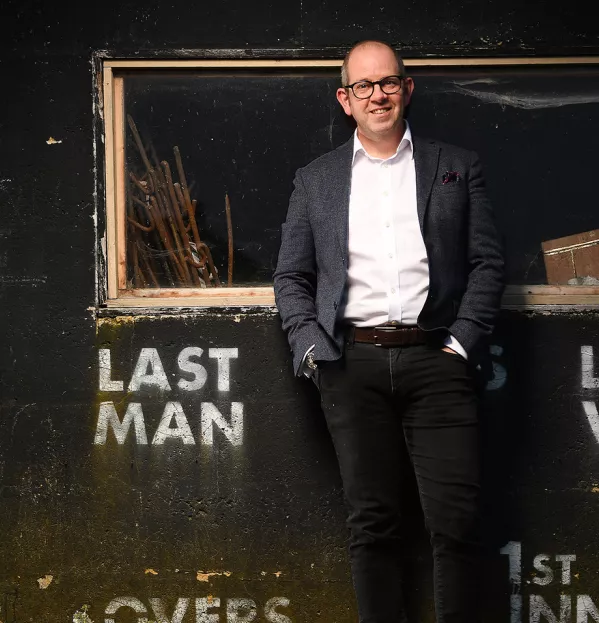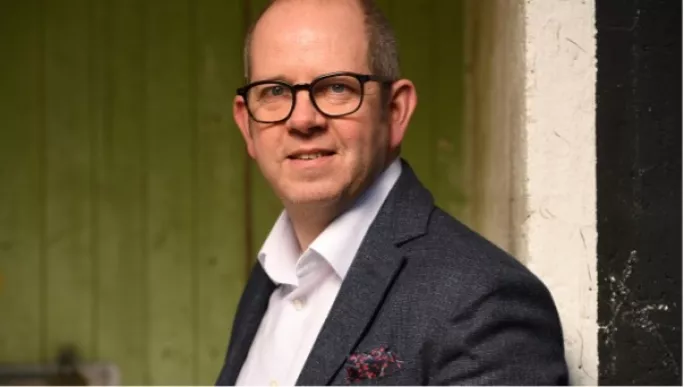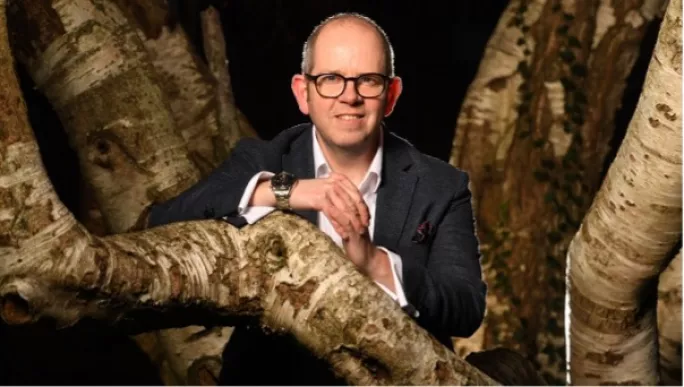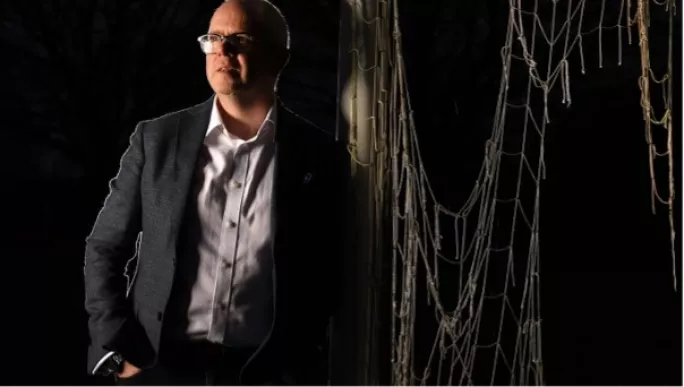- Home
- Leadership
- Strategy
- Tes’ 10 questions with... Colin Bell
Tes’ 10 questions with... Colin Bell

Colin Bell is the chief executive of the Council of British International Schools (COBIS), a role he has held since 2010, and also serves as an appointed member of the ministerially chaired Department for International Trade/Department for Education Sector Advisory Group. He was also recently selected as one of ISC Research’s Top 30 Eduruptors.
He spoke to Tes about his own time in school, the lessons he learned working abroad, why he wants all staffrooms to be filled with plants, and why his proudest educational moments occurred in the capital of Mongolia, Ulaanbaatar.
1. Who was your favourite teacher?
Well, if I may, I’m actually not going to choose a teacher, but a lollipop lady - and I’ll explain why.
I was in Year 1 and I used to get a little bus from school back to where I lived, and my mum would pick me up at the bus stop.
One day I’d been given this really cool Mr Men pencil and I was so proud of it - I’d been given it as an award, so I was really chuffed and I couldn’t wait to show my parents when I got home.
More from Tes’ 10 questions series:
But it must have fallen out of my bag because when I got off the bus, I couldn’t find it. I was in floods of tears when I got off the bus and the lollipop lady - who was called Josie Riley - asked me what the matter was, so I told her and she said, “Oh, never mind - these things happen.”
But then the next morning, when I was crossing the road to the school bus, she bent down and gave me a new Mr Men pencil and I was just blown away by that kindness and I’ve never forgotten that, and that is something I think is essential to what education is all about.
2. What were the best and worst things about your time in school?
Well, the best is definitely a sense of mischief, friendships, having lots of fun, laughter, adventures from infant school, right through to sixth form, and always getting stuck into life at school, whether that was sports, performing arts or in lessons.
At secondary school especially, the teachers were really friendly and there was a sense of fun and everyone knew each other - there was just a great community spirit.

Sadly, the worst thing was that I was at school in 1989 in Liverpool - I grew up in Formby, Merseyside, and went to school in Crosby - and when the Hillsborough disaster occurred there were very sadly losses of life in our school and at other schools where I had friends.
The emptiness of that time will never be filled.
3. Why do you work in education?
I often say, “Education is a futures market but for children,” and I just really get a buzz out of being part of something positive, something that makes a difference.
I love the fact that educators generally have a common purpose that’s all about providing the best life chances possible. I really, really buy into that.
Both my parents were teachers, too, so I always remember playing around in the sports hall of my dad’s secondary school in the summer, and I always felt like school was a great place to be.
4. What are you proudest of in your career? And what do you regret?
I started this role in 2010 and I could see real potential for the organisation and then in 2011 I hosted my first annual conference for COBIS, and I met these wonderful people from Mongolia and they were asking me about how to set up a British school in Ulaanbaatar.
So I spent ages with them talking through plans, helping them with a blueprint for curricula and how to get teachers and leaders and staff and everything like that.
Then in 2012, I rebranded COBIS and we had a new logo made. Just after that, the British School of Ulaanbaatar opened and they invited me over to Mongolia to their amazing opening ceremony.
What really blew me away, though, and what I was so proud of was when I went into the big town square, which is called Sükhbaatar. There were massive billboards everywhere saying “the British School of Ulaanbaatar is opening” and it had the big new COBIS logo all over this town square on the other side of the world. It was incredible.
Regret sounds like a negative emotion, doesn’t it? So I prefer to think of it as experience because sometimes we have to make mistakes and do things wrong to learn for next time, and that’s about gaining experience.
I think some of the best things I’ve learned in this way are that you can’t control other people’s behaviour or emotions and you need to focus on the things you can control - that’s an important lesson.
5. What would your perfect school staffroom be like?
I am a mega biophilic person - I studied horticulture and plant science at university, with my sandwich year at Filoli Botanic Gardens, National Trust of America, just outside San Francisco, California. And on three occasions I’ve been part of a medal-winning team at Chelsea Flower Show for making large rock and waterfall gardens.
As such, a perfect staffroom would be full of really vibrant, healthy, succulent plants, which cleanse the environment, give a positive vibe and atmosphere and make it a place where people want to be.
And then it’s all about the right people, the right skills, the right jobs. Of course, you want diversity of cultures and you definitely don’t want to be isolated from debate or opposing views.
So, for me, you need your performing artists, your musicians, your academics, just a real good mix of people who are committed to mental health, to innovation; people who are into partnerships, people who are into collaborating.
And, ultimately, I go back to that whole thing about a common purpose. People who are there for the right reasons, not just to pick up the paycheck.
6. What would you say are the best and worst aspects of our school system today?
I think the best thing at the moment is it seems there is a real public conversation about education and about schools and school systems.

Obviously, the pandemic has brought to the fore inequalities within the education system. So I think that having more of a national debate about how we set up students for life rather than just for exams, and how there does appear to be this growing sort of conversation about curricular assessments.
I think that almost feeds into the worst thing, which is that we need a broader view of what the story of success is for every child and to redesign assessment to measure what really matters, when it matters, in ways that puts less pressure on learners.
7. Your own teachers aside, who in education has influenced you the most?
Well, first of all, there is a lady called Zoe Griffiths, who is currently a headteacher and she recruited me to my first-ever overseas teaching jobs in Japan and also in the Czech Republic.
She really believed in me, and I’m still friends with her. She’s always been a great support, and if you’re having a rotten time, you have a chat to someone - she’s always been there for me. So she’s one.
The second person is Angela Thomas, who I worked with at Richmond upon Thames education department.
She was brilliant. She had so much energy and so much passion and she told me these phrases that always stuck with me. One of them is that “people who are negative are energy stealers - they will steal your energy, so you have to protect your own energy” and that is something I’ve always followed.
And the third person is the COBIS chairman Trevor Rowell. I’ve had the privilege of working with him for the past 10 years and he’s really taught me about strategic thinking, strategy, development, diplomacy and the value of connectivity internationally.
8. If you became education secretary tomorrow, what would be the first thing you’d do?
I would totally change the national and international kudos of educators - and I mean everyone from the lollipop lady through to the headteacher.
For example, as a nation we’re obviously really supportive of the NHS, and with good reasons, but in my opinion and the opinion of countless other people, it’s not been the same for those who work with our children, who are our most valuable asset.

Other countries do it well [praising educators], so why can’t we frame how proud we are? It would help to attract people into the sector, too. I know the education secretary is working on it but the attrition rates are really high within early career teachers, for a variety of reasons.
So I would really love to see educators at all stages really boosted up for the long term, not just short-term political gain.
9. Who has made the biggest difference to education in the past 12 months?
The one person who’s made the most difference is that one person who in the moment when it was needed showed a child compassion or kindness or gave them encouragement or support that they needed.
That is the one person who has made the biggest difference and we know that person is doing it right this second, and the next second, and it’s multiples of people who are making that difference that, as we know, can have a really lifelong impact.
10. What are the most important lessons you’ve learned doing this job?
I had to set myself a personal mantra when I went through the Windsor Leadership course about six years ago, and I settled on: “Be yourself, know yourself and look after yourself,” which I think helped to crystalise a lot of what I had always thought and now I use to guide a lot of what I do in my role.
Other than that, it’s about always considering the long-term gain for students and schools. Always work on win-win collaborative projects. Always respect other perspectives and never take anything for granted
Colin Bell was speaking to Dan Worth
Register with Tes and you can read two free articles every month plus you'll have access to our range of award-winning newsletters.
Keep reading with our special offer!
You’ve reached your limit of free articles this month.
- Unlimited access to all Tes magazine content
- Save your favourite articles and gift them to your colleagues
- Exclusive subscriber-only stories
- Over 200,000 archived articles
- Unlimited access to all Tes magazine content
- Save your favourite articles and gift them to your colleagues
- Exclusive subscriber-only stories
- Over 200,000 archived articles



